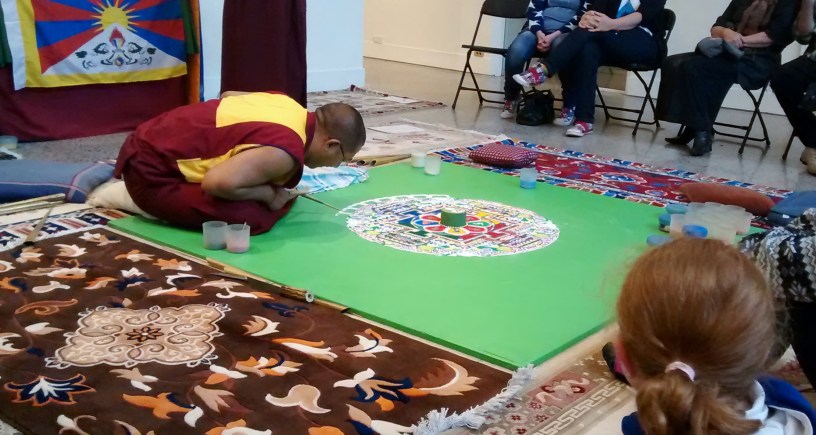April 15, August 15, December 15
A visiting monk from far away will perhaps present themselves and wish to stay as a guest in the monastery. Provided that they are content with the life as they find it, and do not make excessive demands that upset the monastery, but are simply content with what they find, they should be received for as long a time as they wish. They may, indeed, with all humility and love make some reasonable criticisms or observations, which the abbot should prudently consider; it is possible that the Lord guided them to the monastery for this very purpose.
If after a while they wish to remain and bind themselves to stability, they should not be refused this wish, especially as there was time enough, while they were a guest, to judge their character. But if during their stay they were found to be excessive in demands or full of faults, they should certainly not be admitted as a member of the community. Instead, the monk should be politely told to depart, lest their wretched ways contaminate others.
While chapter 60 can be viewed as having within it the invitation to change as made to someone entering the monastery, this chapter sees this invitation being made to the monastic community itself. No one or community are at a place of full maturity. Life is a journey of maturing into love. A commitment to this conversion is one that accepts that people similarly committed to this maturing can come from anywhere. What is vital is that community members be people who can see and experience love’s reality as this love meets them in the circumstances of their lives. This is as vital to us today as it was to the monks of Benedict’s time.
The experience of love, of fellowship and deep meaning, can be such a powerful one that the temptation can be that we change none of the circumstance and routine that, for us, hold this experience. Over time, if the connection between the experience and the circumstance of this experience is somehow lost, the danger is that we can be left with a husk that people cling to because this is all they know. Christian life must always have its attention on Christ and be ready enough to be challenged and renewed by Christ – wherever Christ is and whenever Christ comes.
John Main stated that “the important contemporary message of monasticism” seemed to be “to show that tradition and experience are one in the moment of love.[1]” At the heart of the Christian story is the mystical and thoroughly human experience of divine Love. To embrace Christ consciousness is to embrace the divine reality of love happening now as guided by our living story of tradition. This is happening even while circumstance and experience change. It is Christ, and our attention on Christ, that keep the contemplative life relevant as change happens. In Christ we receive who we are in every time and place.
The WCCM, as a community committed to monastic and contemplative life and witness, is also a community committed to a suppleness of mind that makes it possible to reconnect the Christian story with any contemporary experience of Christ. Attention focused on the divine Love that is Christ nurtures a supple mind and heart. This is what meditation can do.
Prudent, fair consideration is about having an intention that has been purified enough by our attention to God. The community leader is someone who has enough experience in this to discern well enough when love and the invitation to change comes knocking. This is spiritually grounded leadership that is relevant for any community or group that aspires to live in love, be it a family, a government, or a workplace. Prudent and supple leadership is what the world needs now more than ever.
It can be experienced as risk to be other-centred and loving. How we have lived to that point of risk, however, can be challenged to change. What is waiting for us as we leave egocentricity behind is the deep and abiding peace that living a life consistent with the life of love brings. Intending and deciding with a mind and heart shaped enough by attention on Love can allow our work, our everyday actions, to become God’s will. As this happens what we do becomes a part of the greater tapestry of Love’s creativity in the world.
It is perhaps the challenge of our lives to participate in the reordering of our inner lives from ‘I want’ to ‘love wants’. It is this challenge that this chapter, as well as so much of the rule, focuses on. Happiness is living into the expression of what love wants. Much of the time ‘I want’ can propel us into an overactive life motivated by compulsive intention. ‘Love wants’ is about the expression of being. The rule is here to help us face the challenge of doing less and being more. The practice of meditation is consistent with this intention.
With Christ I am crucified and yet I am alive, no longer I, but Christ lives in me. So far as I live in the flesh[2] I live in faith in the Son of God, who loved me and gave himself for me. (Galatians 2:19b-20, RNJB)
[1] Monastery Without Walls, 12.
[2] Human nature and it’s limitations.
